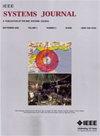基于动态触发策略的非线性多智能体系统的鲁棒领导-追随者共识
IF 4.4
3区 计算机科学
Q1 COMPUTER SCIENCE, INFORMATION SYSTEMS
引用次数: 0
摘要
本文采用动态触发策略研究了具有非线性动力学和不确定外源干扰的非线性多智能体系统的领导-追随者共识问题。采用自抗扰控制设计干扰观测器,对输入信道中的干扰进行估计。为了提高智能体间信息交互时的通信效率和降低能量消耗,在共识控制器中集成了干扰估计器来抑制这些干扰。导出了该算法的收敛条件和下界。最后,通过数值仿真验证了算法的有效性。从业者须知——在工业生产、交通运输、航空航天等领域,由多个被控对象组成的完整系统不可避免地会受到不同程度的外部不确定信号的影响。基于扰动观测器的控制技术有效地解决了质量的鲁棒一致问题。这大大提高了在复杂环境中运行的大多数受控系统的稳定性。同时,分布式dts有效地减轻了设备之间的通信负担,最大限度地降低了对微处理器计算能力的要求,节省了大量的经济成本。毫无疑问,这为MASs的发展提供了一种新的途径。本文章由计算机程序翻译,如有差异,请以英文原文为准。
Robust Leader–Followers Consensus for Nonlinear Multiagent Systems With Exogenous Disturbances via Dynamic Triggered Strategies
The article investigates the leader–followers consensus problem of nonlinear multiagent systems with nonlinear dynamics and uncertain exogenous disturbances, employing dynamic triggered strategies (DTSs). An active disturbance rejection control is utilized to design a disturbance observer for estimating the disturbances in the input channel. To enhance communication efficiency and reduce energy consumption during information interaction between agents, the disturbances estimator is integrated into the consensus controller to suppress these disturbances. The convergence condition and lower bound of DTSs are derived. Finally, numerical simulations validate the effectiveness of the proposed algorithm.
Note to Practitioners— The complete system composed of multiple controlled objects in industrial production, transportation, aerospace, and other fields is inevitably influenced by external uncertain signals to varying degrees. The disturbance observer-based control technique effectively addresses the robust consensus problem of MASs. This significantly enhances the stability of most controlled systems operating in complex environments. Simultaneously, the distributed DTSs efficiently reduce communication burden between devices, minimize microprocessor computing power requirements, and save substantial economic costs. Undoubtedly, this offers a novel approach for the development of MASs.
求助全文
通过发布文献求助,成功后即可免费获取论文全文。
去求助
来源期刊

IEEE Systems Journal
工程技术-电信学
CiteScore
9.80
自引率
6.80%
发文量
572
审稿时长
4.9 months
期刊介绍:
This publication provides a systems-level, focused forum for application-oriented manuscripts that address complex systems and system-of-systems of national and global significance. It intends to encourage and facilitate cooperation and interaction among IEEE Societies with systems-level and systems engineering interest, and to attract non-IEEE contributors and readers from around the globe. Our IEEE Systems Council job is to address issues in new ways that are not solvable in the domains of the existing IEEE or other societies or global organizations. These problems do not fit within traditional hierarchical boundaries. For example, disaster response such as that triggered by Hurricane Katrina, tsunamis, or current volcanic eruptions is not solvable by pure engineering solutions. We need to think about changing and enlarging the paradigm to include systems issues.
 求助内容:
求助内容: 应助结果提醒方式:
应助结果提醒方式:


